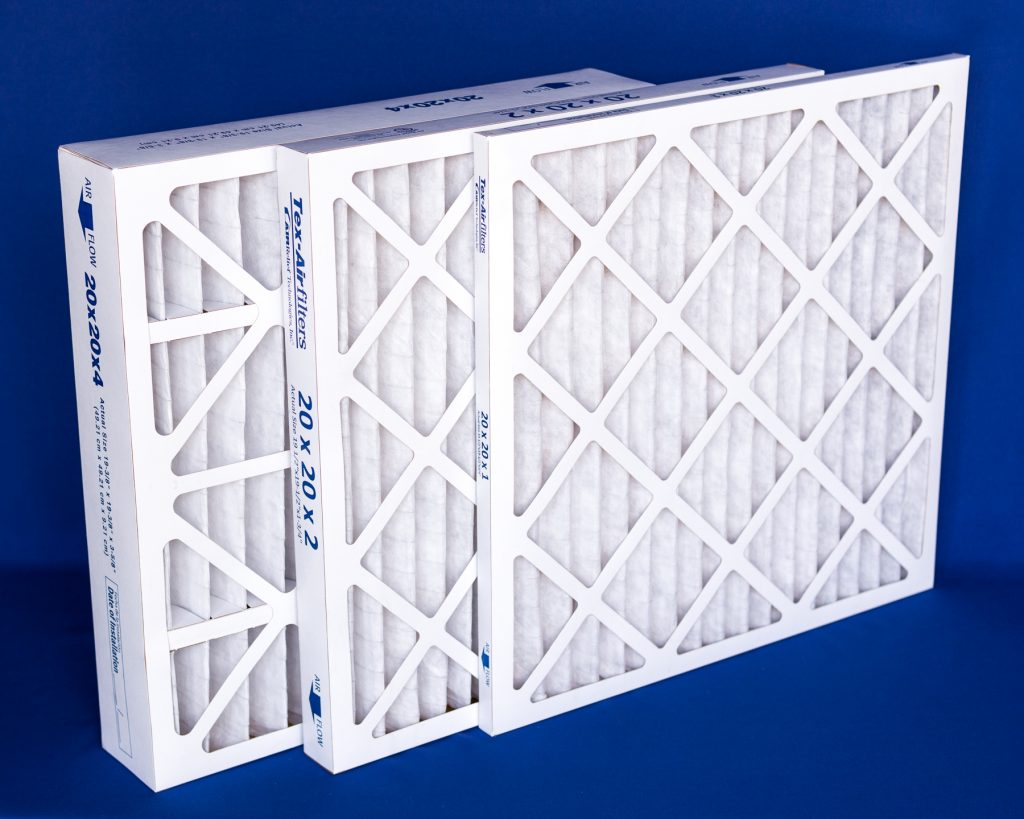The scale for the MERV rating system is 1 to 20. Although most people prefer higher ratings, some applications require a MERV rating scaled in the mid-range. For instance, air filters with a MERV value of 16 to 20 are often needed in hospitals, nuclear power plants, and other demanding situations. In contrast, most homes typically need filters with a MERV rating of 5 to 13. Air filters beyond MERV 13 may jeopardize the efficiency of your home HVAC system, while those below MERV 5 will not be sufficient to maintain adequate indoor air quality.
Contents
MERV Ratings and the Quality of Your Indoor Air
Your HVAC air filter MERV rating substantially impacts your family’s comfort and health. If you have allergies frequently, consider upgrading to a filter with a higher MERV rating. Consequently, you’ll have less typical allergy symptoms, and more contaminants will be eliminated from the air. Additionally, there won’t be as many complaints about rashes, runny noses, persistent sneezing, sore throats, headaches, and eye discomfort in your home.
Upgrading your air filter MERV rating can shield your home from bacteria damage and duct leaks. Additionally, you can prevent contagions and experience fewer spells of disease. A high-scoring MERV filter is advantageous for those with weakened immune systems.
MERV Ratings & Your Energy Use
Air filters need smaller pores to absorb more airborne particles. As time goes on, the openings get smaller, which makes it more difficult for even air to flow through. The HVAC system also needs more energy to function properly, so it is not advisable to install a MERV 20 air filter in a house that was not designed to accommodate this level of filtering.
Residential air filters typically range in MERV rating from 8 to 13. These ratings can keep your home’s air quality reasonable without significantly raising energy expenditures.
MERV Ratings and Your HVAC’s Condition
Every HVAC system that uses forced air has an air filter with a recommended MERV rating. Homeowners should adhere to the suggested MERV ratings to avoid unintended problems. Despite being cheaper, filters with low ratings can later cause expensive system issues, and it’s also possible that these air filters can’t effectively capture contaminants.
The outcome is a buildup of dust and bacteria in the ducts. Consequently, the HVAC system’s efficiency will decline while maintenance expenses rise. On the other side, purchasing an air filter with a rating higher than advised will reduce HVAC airflow, lead to quicker wear and tear, and have a shorter system lifespan.
What MERV Rating is Ideal For Your Air Filter?
Since every HVAC system is different, it is challenging to make precise suggestions. The best action is to consult the owner’s manual. A MERV 8 to 13 filter should work effectively for most houses, and these can eliminate the majority of undesirable particles without overworking the system.
Households with few occupants and no pets should be ok with a MERV 8 filter, whereas families with more occupants and some pets require a MERV 11 filter. Use a MERV 13 filter if someone in your home has a compromised immune system.

